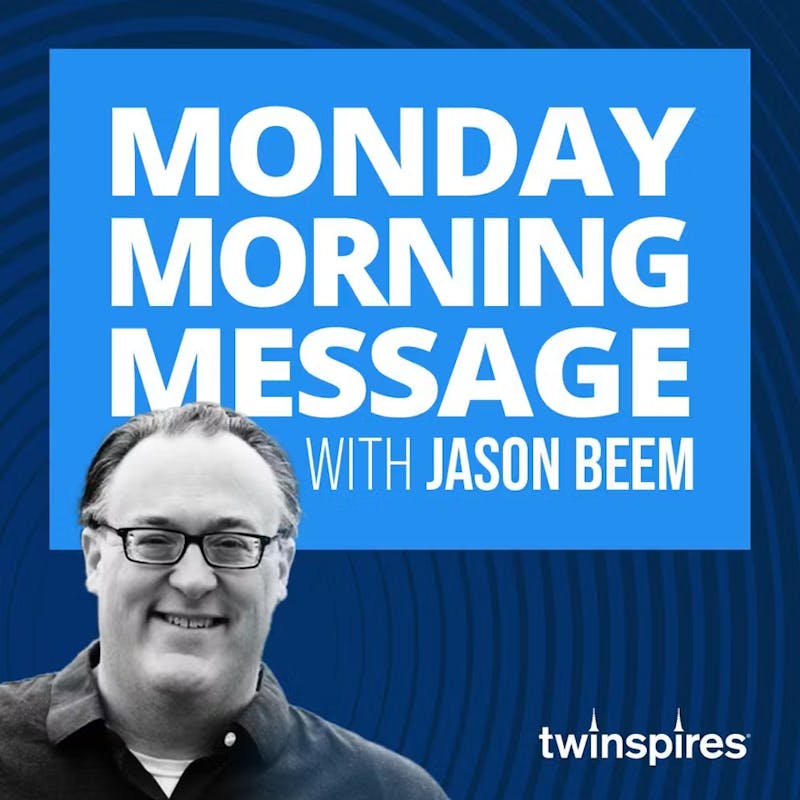Monday Morning Message with Jason Beem April 15, 2024

A good Monday morning to you all! Hope everyone had a great weekend.
Masters weekend feels like it’s up there for the top sports weekends of the year. Derby is almost upon us, the NBA and NHL playoffs are starting this week, so for sports fans and bettors it’s a great time.
The Masters is one of those events I usually do try and find time to watch as much as I can. As a weekend worker it’s not easy to watch a lot of it, but I was able to sneak in a few shots between races at Tampa Bay Downs, as well as the last five holes or so after work. It’s a quintessential American sports event and it’s that fact that I wanted to explore more in today’s column.
A lot of sports or events go outside of their normal fandom and into the more general wide span of societal interest. I’d say events like the Masters, the Indy 500, and even our own Kentucky Derby would fall on that list. People who never pay attention to those sports will often find themselves tuning in for those events. So it got me thinking: what leads people to tune into those events?
Some of it is just tradition. Those events I listed have all been around since way before most of us were born (the Masters started in 1934, so some of you might have been around!). But a great majority of us grew up with it already being a great tradition. How long does it take a tradition to form? Well, the dictionary definition says “a custom or belief passed from generation to generation.” So it clearly takes at least a generation.
#3 Mystik Dan takes the 150th Kentucky Derby! #KentuckyDerby150 #KYDerby150
— TwinSpires Racing 🏇 (@TwinSpires) May 4, 2024
🎥 #TwinSpiresReplay pic.twitter.com/hYbi8AghlB
When new events like the Pegasus World Cup in racing, or that sport where people just slap each other on stage start up, it takes a long time before they truly become a tradition. Sure, there are probably people who go to the Pegasus each year and it’s become a tradition of sorts for them. But to get to that large-scale mass audience type tradition, I think you got to be at least a decade in. Of course I say that and now realize Wrestlemania peaked at just its third edition.
Watching the Masters my thinking was more geared towards, “I enjoy this tournament so much, why does it not lead me to want to watch more golf throughout the year?” I certainly thought about that in regards to "how do we capture all the people who tune into the Kentucky Derby each year and get them to show up or watch some of our other great events that aren’t the Triple Crown or the Breeders’ Cup?"
I grew up as a golfer and played a lot as a young person. I played on my high school golf team and even qualified for the state tournament (I legit finished last). But it was a reasonably big part of my life. I don’t know why golf lost me over the years, but it did. Part of it I think is we all have only so much room for certain hobbies. I have some friends who can seriously follow many sports at a time. I have enough bandwidth to probably follow two or three seriously but that’s about it. Between friends and activities, again, there’s only so much time.
Like golf, horse racing is a hobby that asks a lot of time from our audience. To sit and watch a round of golf is four or five hours. Some of our featured horse racing days last up to seven hours or even more. Baseball has garnered a lot of positive reaction for shortening up its daily product in recent years with the pitch clock. I will say I go to probably five or 10 times more baseball games the last couple years than I did before the pitch clock. I was a baseball fan, I got away, but I’m back in now. There’s so many racing fans who tune in just once or twice a year or have gotten away from the game. We have an opportunity to get them back, but the product and the value has to be there. Like me, they only have so much time, money, and effort to dedicate.
Have a great week everyone!
ADVERTISEMENT



